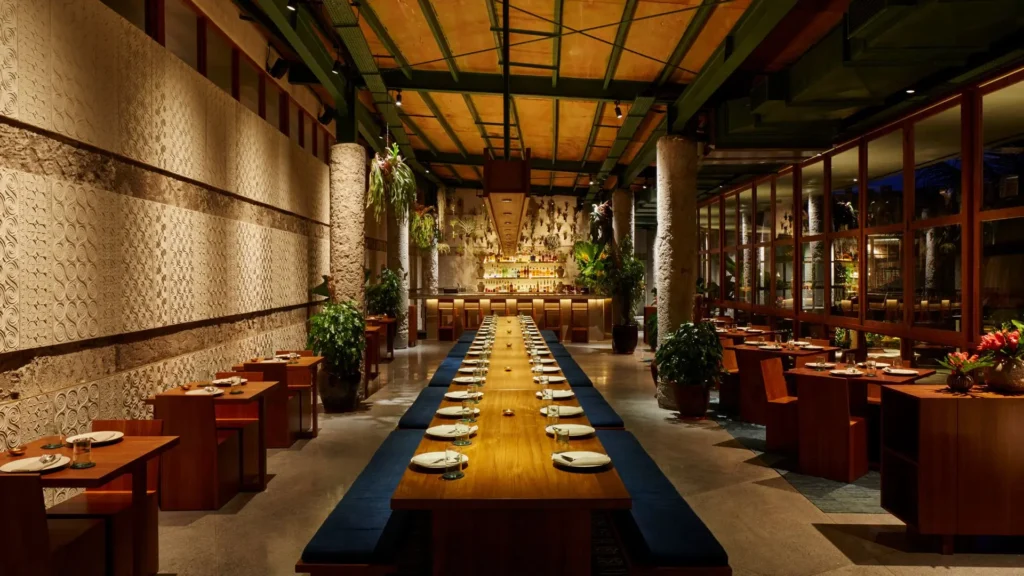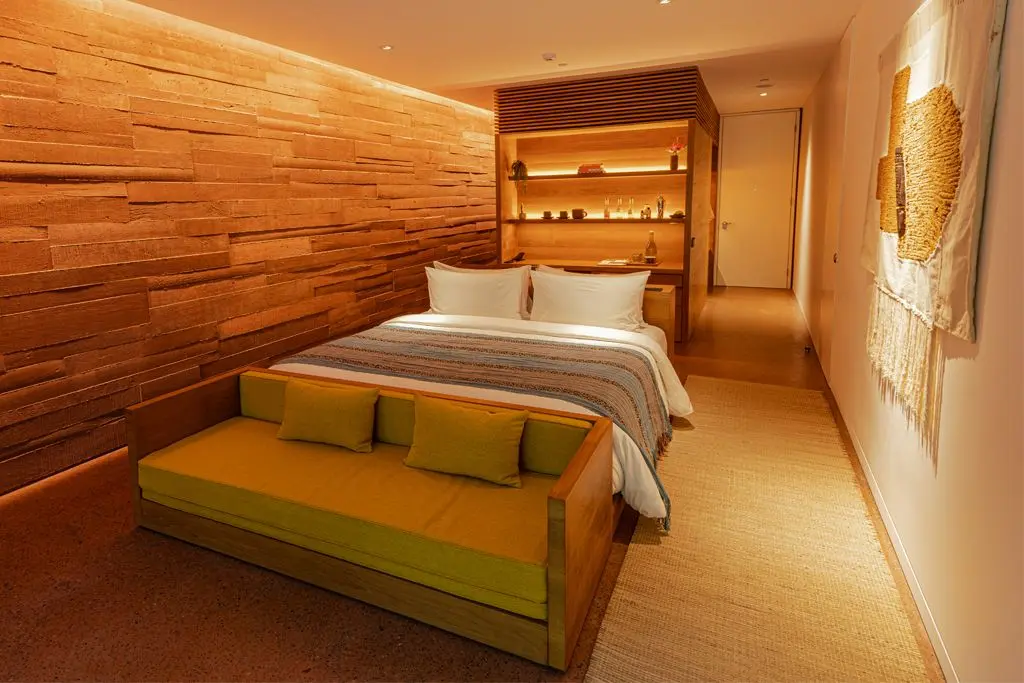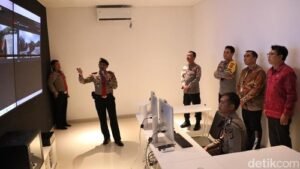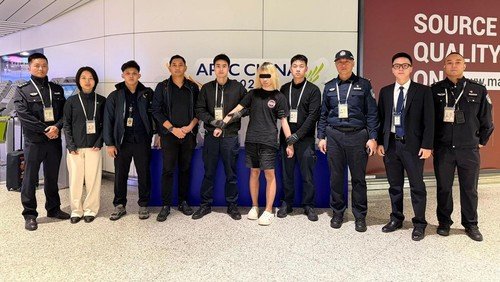
Desa Potato Head has made sustainability the foundation of its identity.
Since opening in 2019, the Seminyak beachfront resort has fused environmental responsibility with high-end hospitality, setting a standard for eco-conscious travel.
The industry has taken note: in 2023, it ranked 40th on “The World’s 50 Best Hotels” list, and in 2024, it climbed to 21st, reinforcing its status as a leader in sustainable luxury.
Beyond a Beach Club: Building a Village with Purpose
What started as a beach club—hosting global acts like Peggy Gou and Snoop Dogg—has grown into a 225-room complex. Six restaurants, an underground dance club, and a Creative Centre designed by Dutch architecture firm OMA now anchor the property.
Built from repurposed Javanese shutters, the Creative Centre embodies Desa Potato Head’s ethos: sustainability should be both practical and striking.
“Our goal was to create a place where people don’t just stay but engage,” says Dan Mitchell, chief creative officer. “We want guests to see sustainability not as a limitation but as a source of innovation.”
The resort’s design marries traditional Balinese aesthetics with contemporary luxury. The Potato Head Suites, for instance, incorporate hand-pressed temple bricks, blending heritage with modern comfort.



A New Standard for Eco-Travel
Desa Potato Head has turned waste management into an attraction. The resort operates at 97.5% zero waste to landfill—a feat that earned it certification from the United Nations Climate Neutral Now initiative, making it Indonesia’s first hospitality brand to receive the recognition.
It is also the first property in Bali to earn a three-star rating from The Sustainable Restaurant Association’s Food Made Good Standard, highlighting its commitment to responsible sourcing.
The resort’s “Follow the Waste” tour gives guests a firsthand look at its circular economy in action. From sorting plastic waste by color to transforming bottle caps into welcome gifts, the experience is designed to make sustainability tangible.
“The purpose is to convey a serious message in a way that’s engaging and culturally relevant,” Mitchell explains.
Scaling Impact: The Community Waste Center
Potato Head’s ambitions go beyond its own operations. In October 2024, it launched the Community Waste Center, a collaborative initiative with neighboring properties aimed at addressing Bali’s mounting waste crisis. While Desa Potato Head has nearly eliminated its landfill contributions, over 500 hotels on the island continue to produce vast amounts of waste.
For founder Ronald Akili, the project is personal. A surfing trip with his son became a moment of reckoning when they found themselves surrounded by floating garbage.
“Sustainability is often tethered to scarcity,” Akili says. “But to defeat indifference, the solutions must be desirable. Beautiful, functional, really cool—and it just so happens to be recycled.”
During the COVID-19 pandemic, the resort also launched the Sweet Potato Project, providing at-risk residents with meals made from locally sourced ingredients and delivered via biofuel-powered transport.
Designing the Future of Sustainable Luxury
Every element of Potato Head reinforces its commitment to circular design. Guest rooms feature walls made from crushed oyster shells and Styrofoam waste. Biodegradable coconut husk slippers replace standard disposables, while sunscreen is packaged in refillable aluminum jars. Even the furniture tells a story, with designers like Max Lamb and Faye Toogood working alongside local artisans to craft pieces from volcanic sand and upcycled materials.


Looking ahead, Potato Head plans to open an on-site design center, expand its artist residencies, and launch “Wasted”—a product line that lets guests take home recycled-material creations. As Mitchell puts it, “We’re weaving music, art, design, well-being, food, and regeneration into what we believe is a holistic approach to life.”
For travelers looking beyond greenwashed marketing, Desa Potato Head offers a glimpse of what sustainable luxury can be: immersive, inventive, and deeply considered.










